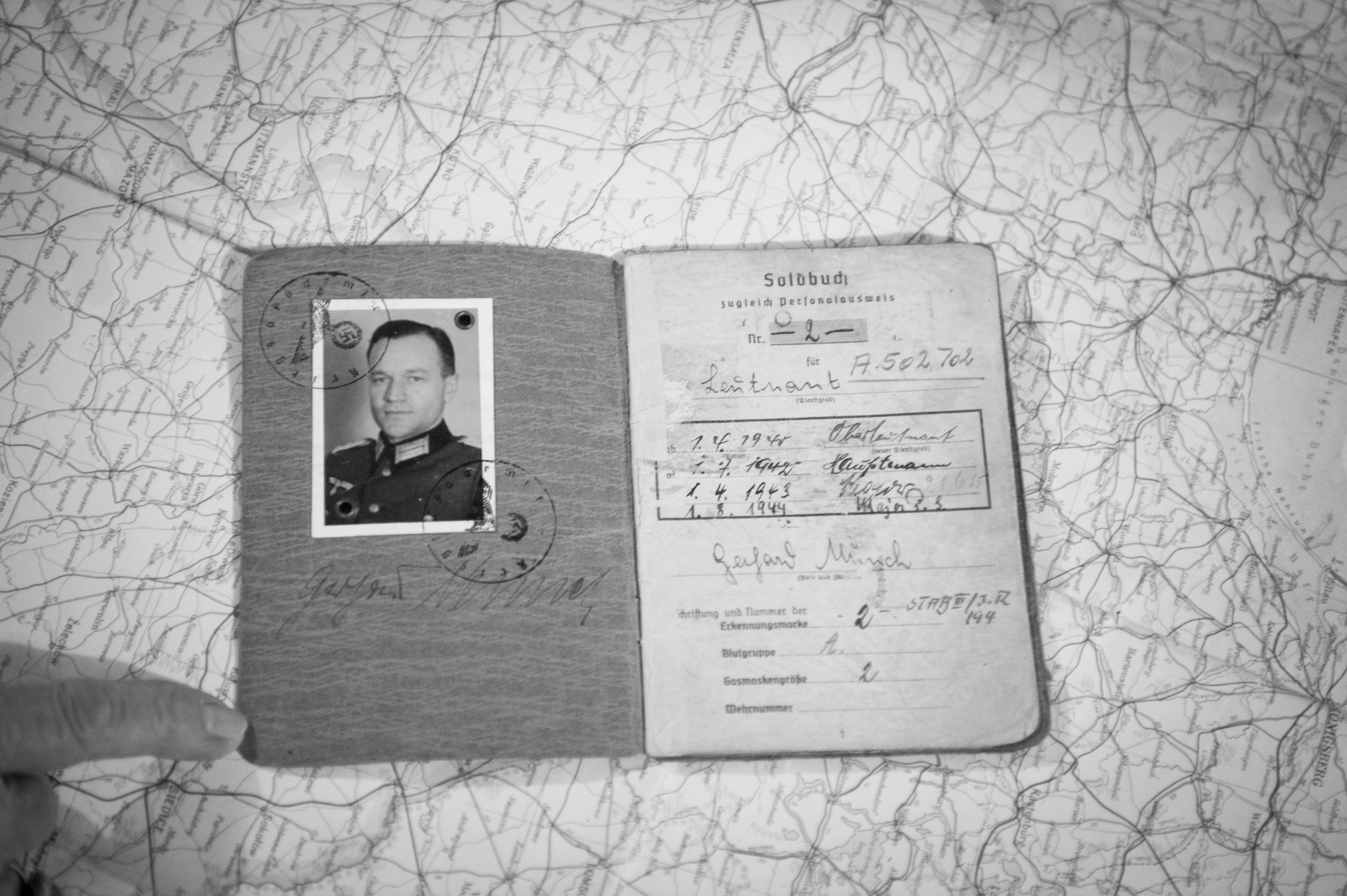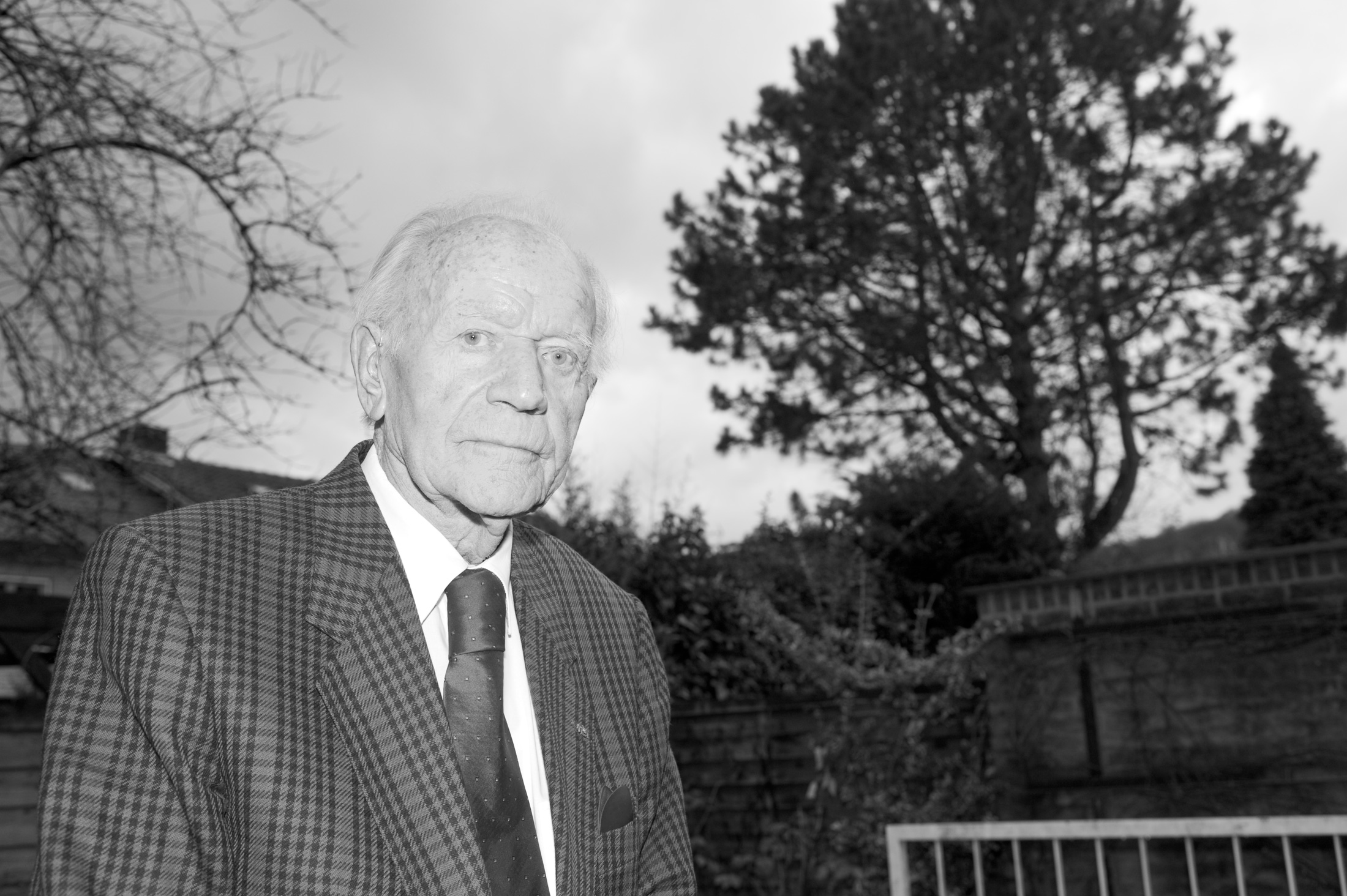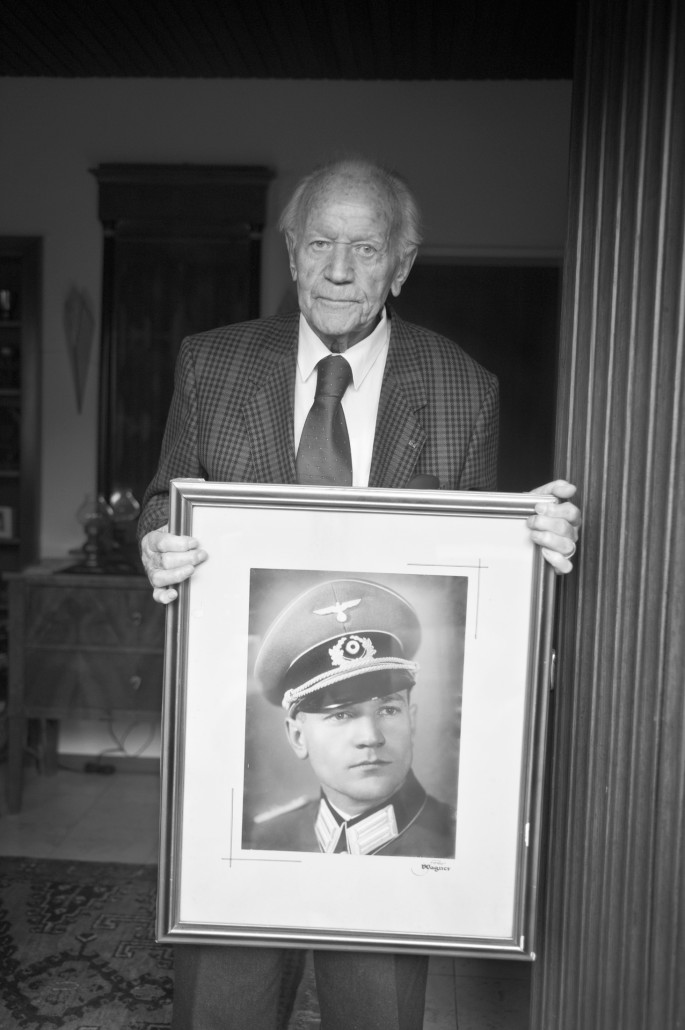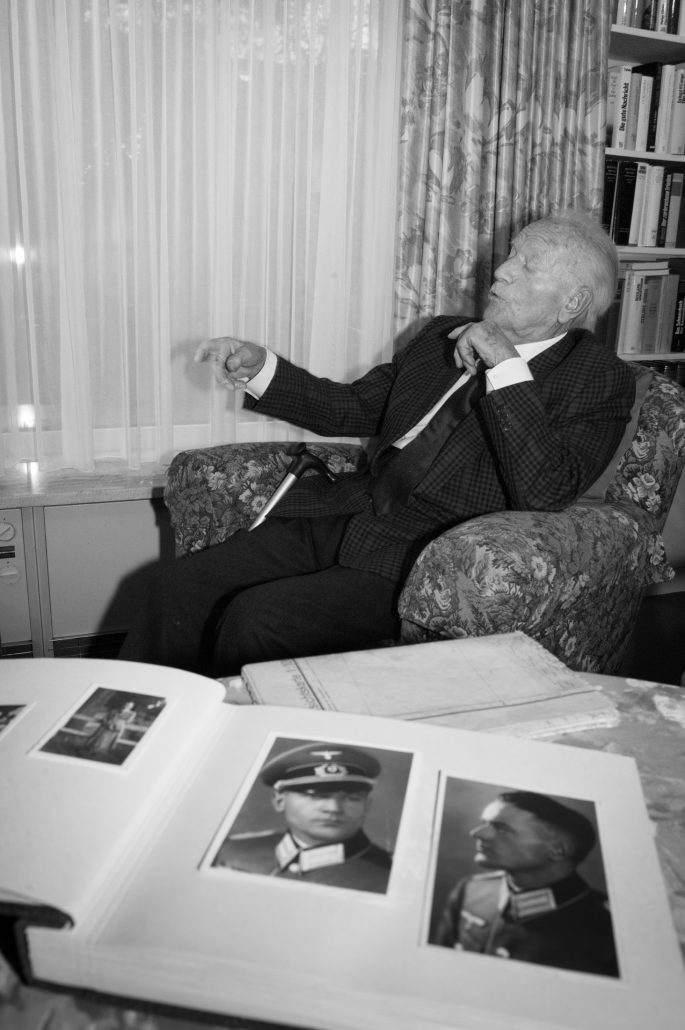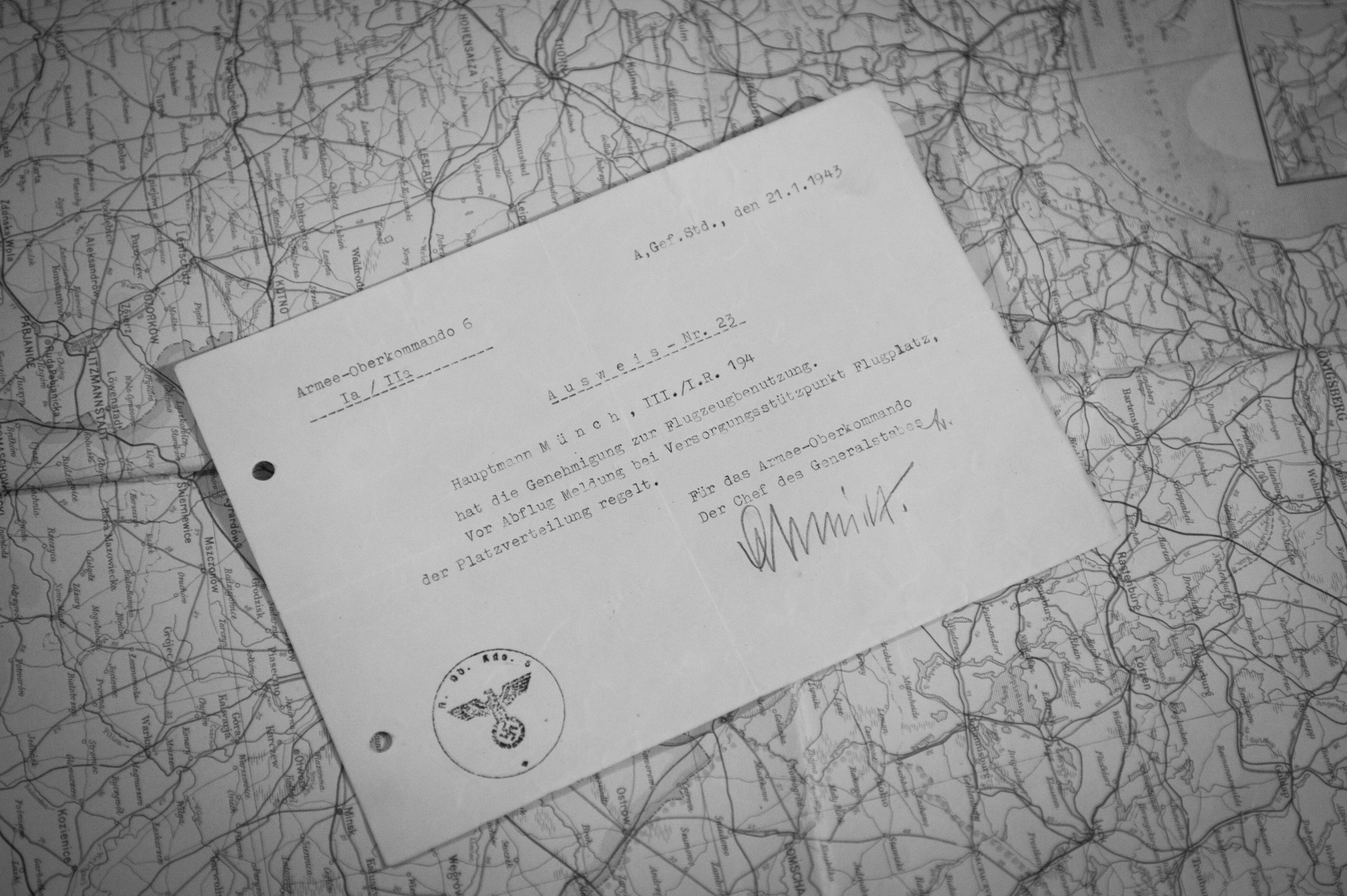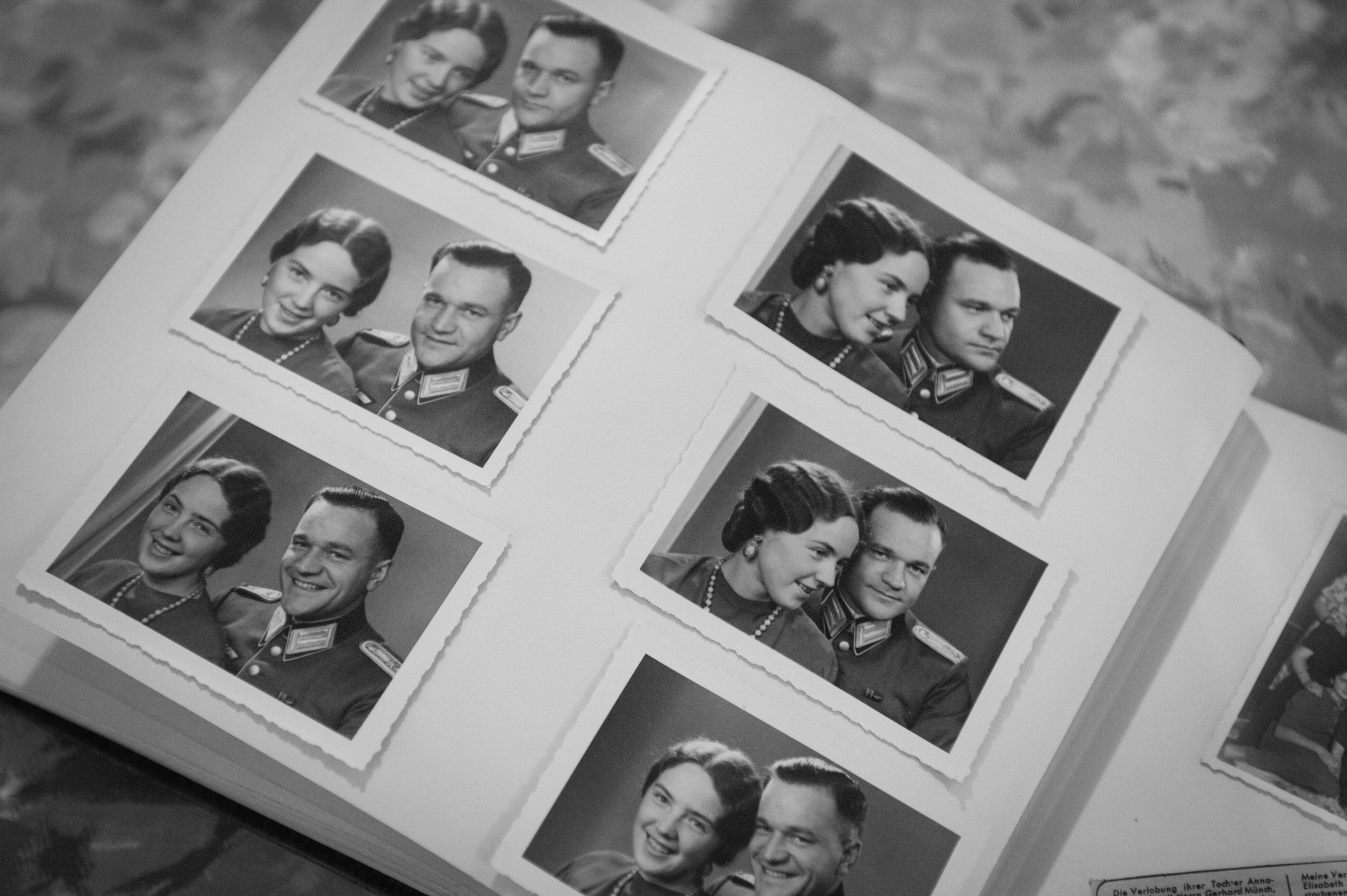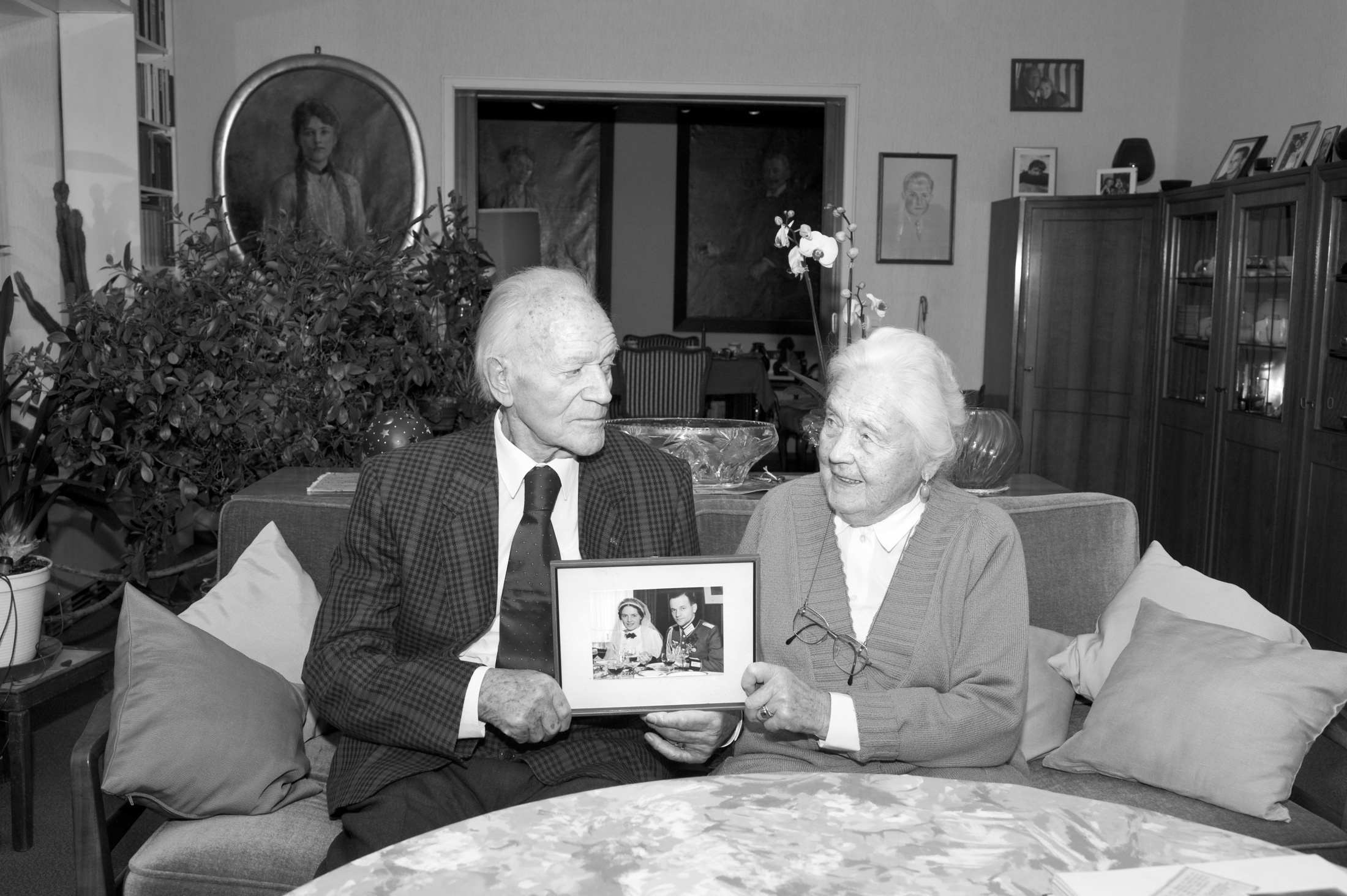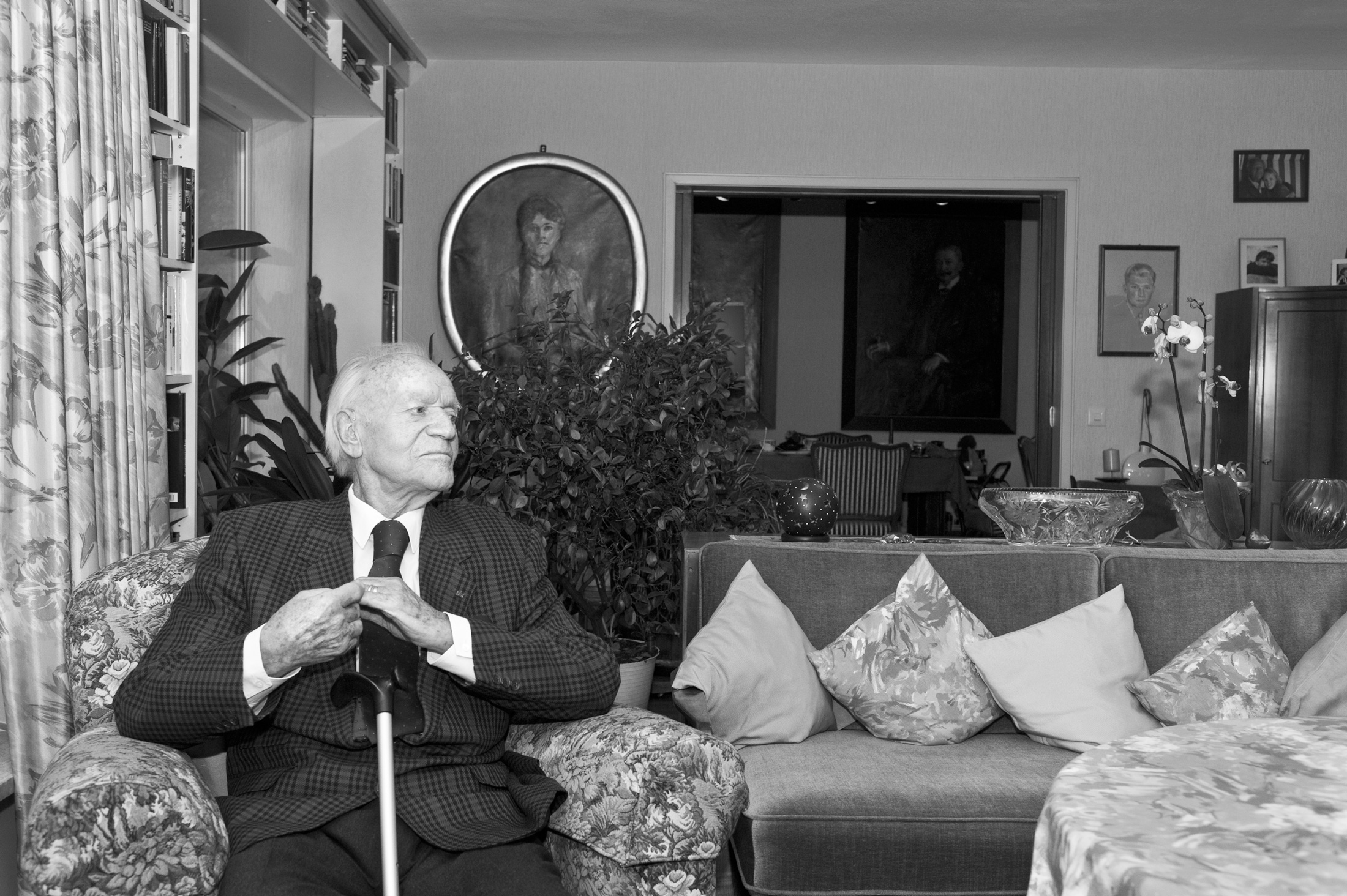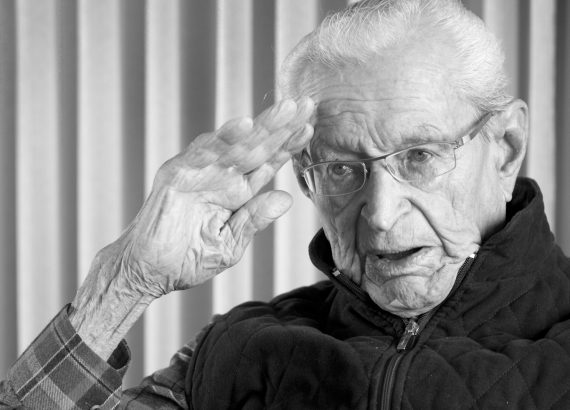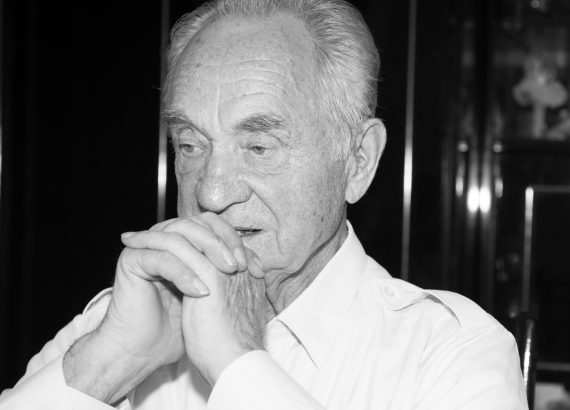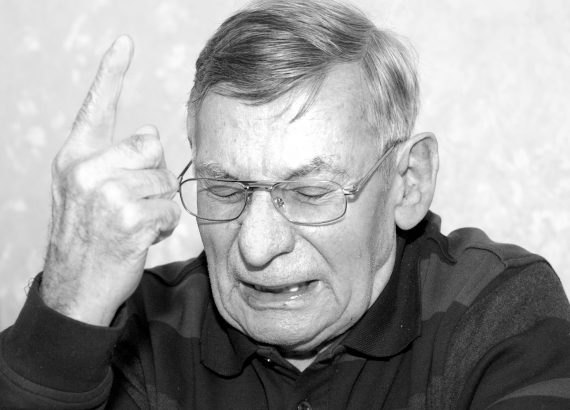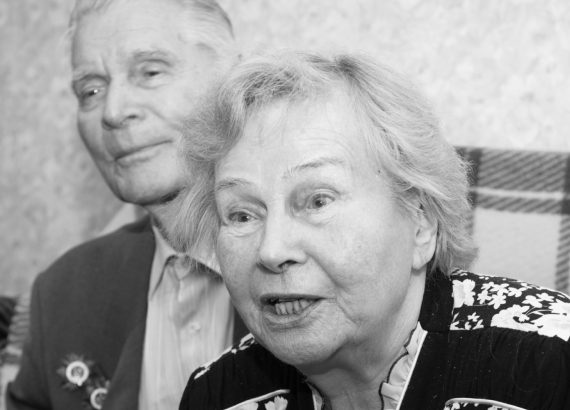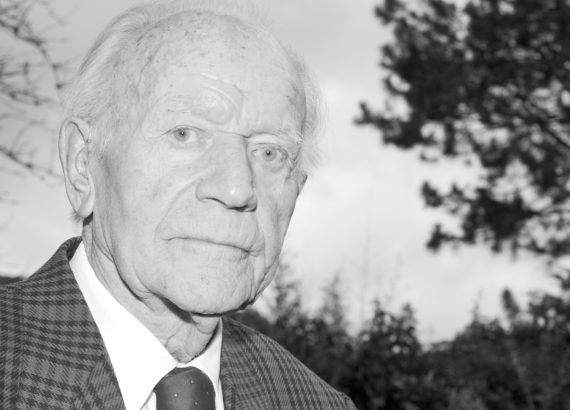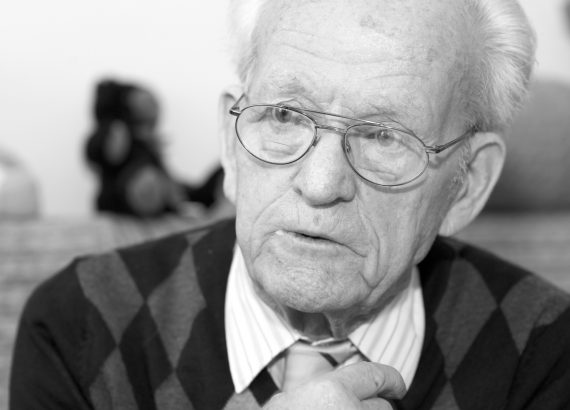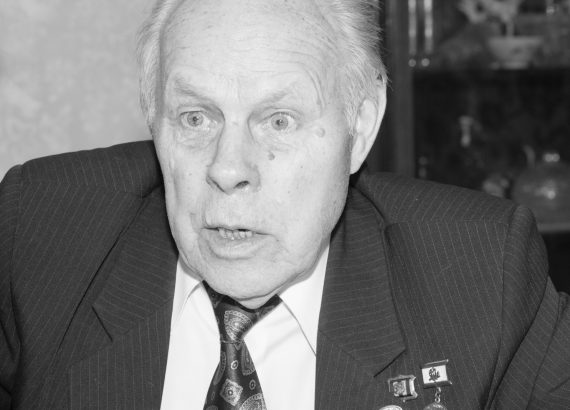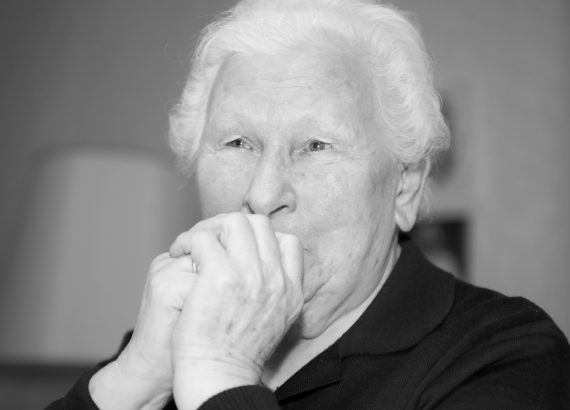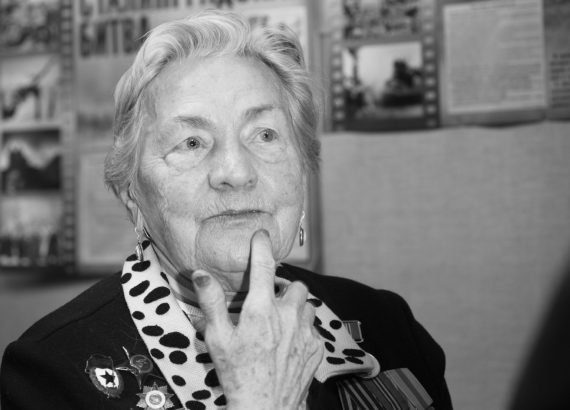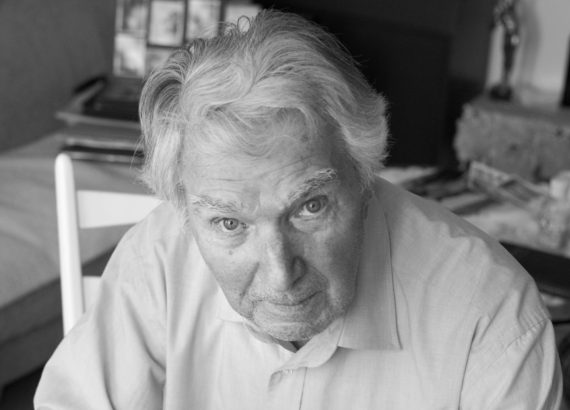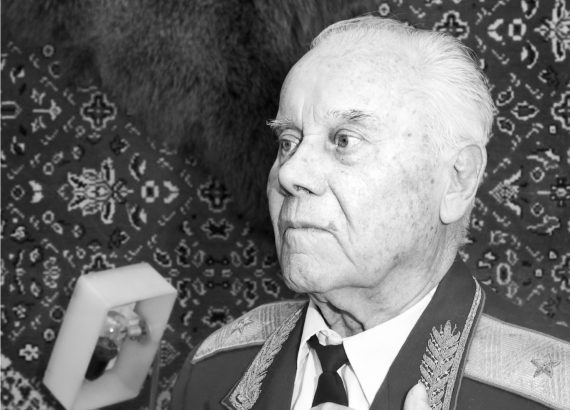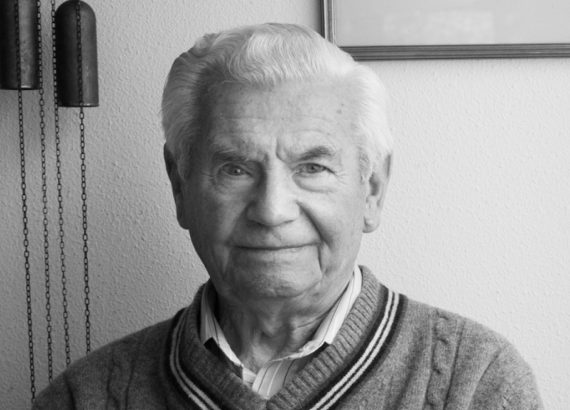Gerhard Münch was born in 1914 in Vettelschoß near the Rhine river. Hailing from a military family he underwent tranining as an officer. At the outbreak of the war he was enlisted in the 71st Infantry Division which fought in France in 1940 before being deployed to the Eastern Front. Captain Münch commanded a battalion during the assault on Stalingrad. On January 22, 1943, he was flown out of Stalingrad, leaving behind the surviving men of his battalion, among them his orderly Franz Schieke. Shortly thereafter Münch reunited with his wife Anna-Elisabeth and their newborn son. Later in 1943 he was again sent to the Eastern Front. When the war ended he was in Flensburg with the Dönitz Government negotiating with the Allies on the German capitulation. In the 1950s, Münch joined the West German Army and advanced to the position of major general.
When we first discussed our project with Münch he agreed that we take pictures but he did not want to talk about Stalingrad. The memories, he said, were too painful. But after we sat down together in his modern bungalow in Lohmar, near Bonn, the memories poured out, and he spoke for hours on end.
